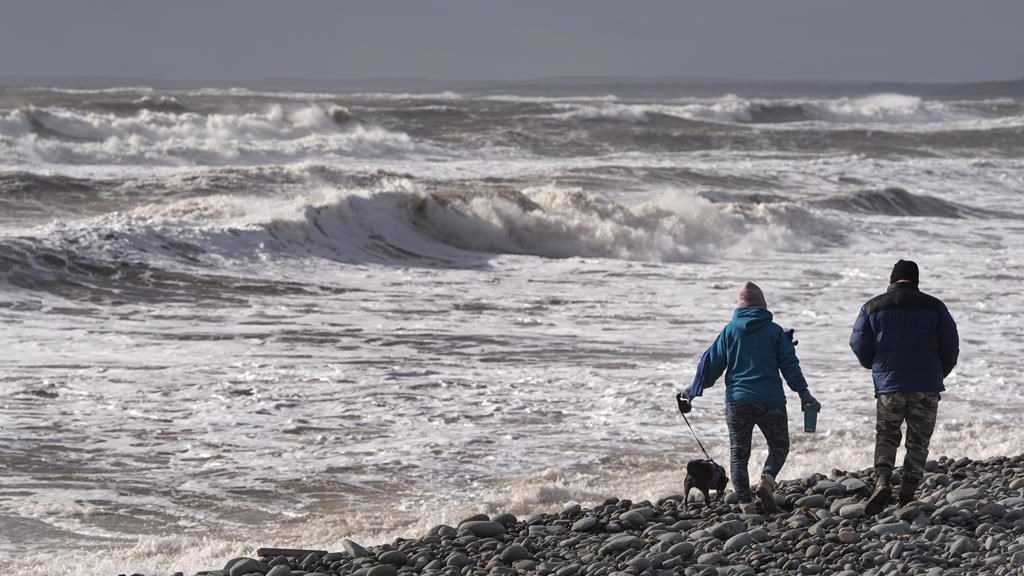Transat says its forecast for profitability in 2013 aren’t dimmed by Rouge
Posted Jun 13, 2013 07:56:05 AM.
This article is more than 5 years old.
MONTREAL – Transat A.T. says the impending launch of Air Canada’s low-cost carrier has not dimmed its prospects for a stronger summer and a return to profitability this year.
Prices for travel to Europe this summer are running five per cent higher as a 12 per cent cut in capacity is helping to boost margins, it said.
If conditions hold, the Montreal-based travel company expects a strong second half of the year and an adjusted profit in 2013 as a whole.
CEO Jean-Marc Eustache said Transat has faced heavy competition over the years and sees little new in Air Canada’s latest plans to service a few European destinations this summer.
“The market is better this year than last year … I have no problem making money on those routes,” Eustache said Thursday during a conference call to discuss his company’s second-quarter results.
Air Canada’s new entry, Rouge, plans to offer flights to Athens, Venice and Edinburgh, in addition to servicing 10 destinations in the Caribbean and Mexico.
The Air Canada offshoot will operate at lower cost than the mainline carrier, but it is not expected to offer lower prices than competitors.
Plane load factors and prices are running ahead of last year on those European routes, Eustache said. Transat services Glasgow, which is a quick train ride from Edinburgh.
Transat (TSX:TRZ.B) shares got a lift Thursday after the travel company’s second-quarter results beat expectations and the company voiced high expectations for the rest of the year.
The company lost $22.8 million or 59 cents per share in the quarter ended April 30. That compared with a loss of $13.2 million or 35 cents per share a year ago.
On an adjusted after-tax basis, after removing items for fuel hedges, restructuring and investment, the chartered airline and integrated vacation business lost $1.43 million or four cents per share.
That’s far better than the 26 cents per share loss estimated by analysts, according to Thomson Reuters. It was also an improvement from a loss of 64 cents per share in the second quarter of 2012.
The company has been working for more than a year to eliminate its losses, sparked in the summer of 2011 by a spike in fuel costs. Since then, the prices for crude oil and aviation fuel have dropped dramatically amid a more uncertain global economy and the company has taken a number of measures to reduce expenses.
Transat’s revenues dipped to $1.11 billion from last year and were below analyst estimates. The decrease was mostly due to Transat’s decision to reduce capacity on its transatlantic and sun destinations from Canada.
On the Toronto Stock Exchange, Transat shares closed up 73 cents or nearly 14 per cent at $6.04. The stock remains below its 52-week high of $6.69 set in February, but is up significantly over the past year.
Several analysts published optimistic notes on the earnings after to the results were released.
“We like management’s disciplined approach to achieving superior margins by focusing on capacity management and higher selling prices,” wrote Benoit Poirier of Desjardins Capital Markets.
Jacques Kavafian of Toll Cross Securities raised his target price for Transat to $16 from $9 after boosting his 2013 adjusted earnings estimate by 27.5 per cent to 88 cents per share. His 2014 estimate was increased to $1.66 per cent from $1.40.
“Our target price is aggressive, however, it would still be less than half of what the share prices was in 2008,” he wrote in a report.
The analyst added that he doesn’t perceive Air Canada Rouge as a competitive threat.
“It will merely paint the aircraft in different colours and those aircraft will continue to fly where they have always flown,” he said, noting the cost reductions are internally beneficial to Air Canada.
Kavafian called Air Canada’s new routes to Venice and Edinburgh more for “show” and an attention grabbing marketing initiative than a strategic direction.
None of Air Canada’s new Boeing 787s will be deployed on routes that compete with Transat.
“In short, Rouge’s potential negative impact on Transat is blown out of proportion,” Kavafian added.
The number of Canadian travellers decreased by 13.7 per cent, Transat said. Revenues at its North American and European business units fell eight per cent and 12.4 per cent respectively.
The European business lost money in the quarter but expects to break even for the full year.










